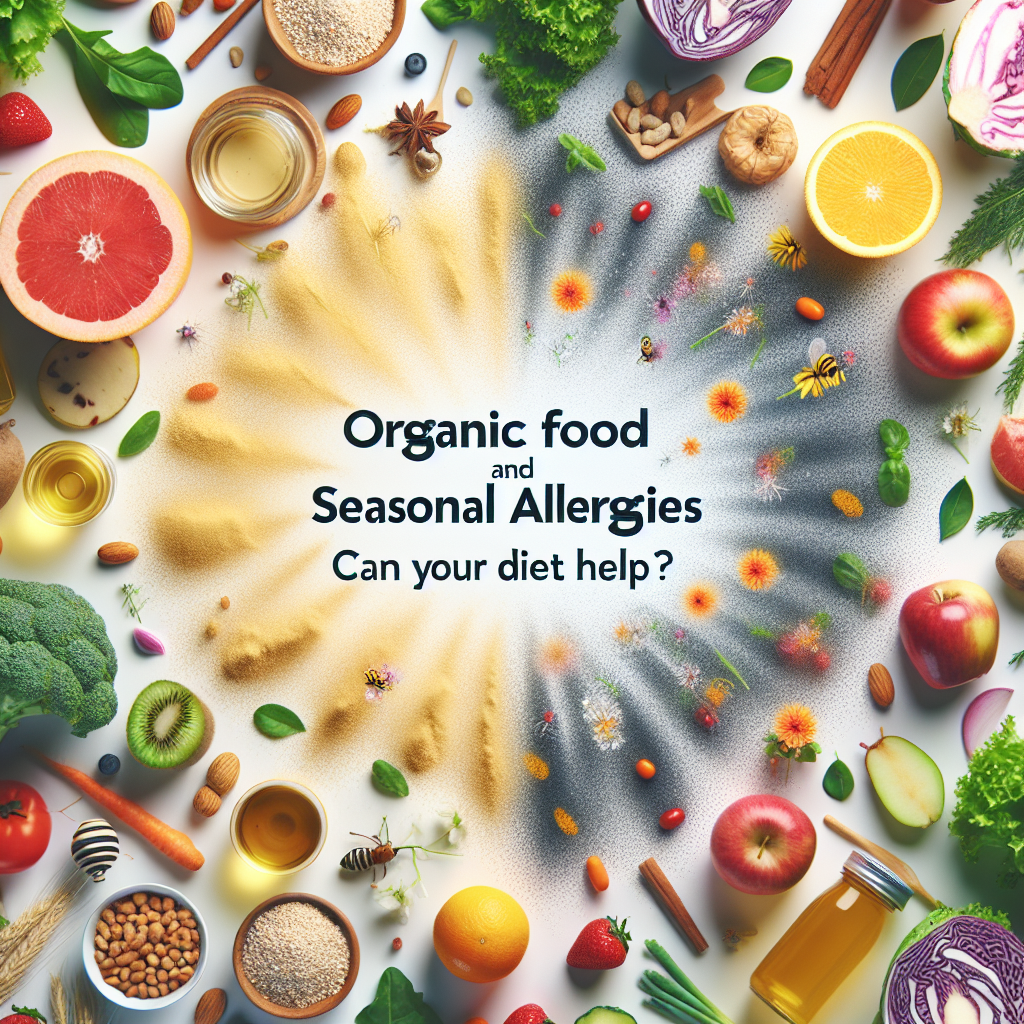Can Organic Food Help Combat Seasonal Allergies?
Seasonal allergies affect millions of people worldwide, causing sneezing, itchy eyes, congestion, and fatigue. While medications like antihistamines provide relief, many individuals seek natural ways to reduce their symptoms. One emerging area of interest is the link between organic food and seasonal allergy relief. By avoiding synthetic pesticides and consuming nutrient-rich, anti-inflammatory foods, organic diets may help strengthen the immune system and reduce allergic reactions.
How Organic Food May Reduce Allergy Symptoms
Conventional farming relies heavily on synthetic pesticides and fertilizers, which may contribute to inflammation and immune system dysfunction. Organic farming, on the other hand, avoids these chemicals, potentially reducing the body’s exposure to irritants that could worsen allergies. Here’s how organic food might help:
- Fewer Chemical Residues: Non-organic produce often contains traces of pesticides, which some studies suggest may aggravate immune responses. Organic foods are grown without these chemicals, potentially lowering inflammation.
- Higher Nutrient Content: Some research indicates that organic produce may have higher levels of antioxidants and phytonutrients, which support immune health.
- Supports Gut Health: A healthy gut microbiome is crucial for immune regulation. Organic foods, particularly fermented and fiber-rich options, promote beneficial gut bacteria.
Top Organic Foods for Allergy Relief
Certain organic foods are known for their anti-inflammatory and immune-boosting properties. Incorporating these into your diet may help mitigate seasonal allergy symptoms.
1. Local Organic Honey
Raw, local honey contains trace amounts of pollen from nearby plants. Some studies suggest that consuming small amounts of local honey may help your body build tolerance to seasonal allergens, reducing symptoms over time.
2. Organic Turmeric
Turmeric contains curcumin, a powerful anti-inflammatory compound. Adding organic turmeric to meals or drinks may help reduce nasal congestion and irritation caused by allergies.
3. Organic Leafy Greens
Kale, spinach, and other leafy greens are rich in quercetin, a natural antihistamine. Eating organic greens ensures you avoid pesticide residues while benefiting from their immune-supporting nutrients.
4. Organic Apples
Apples contain quercetin and vitamin C, both of which may help stabilize mast cells and reduce histamine release—key factors in allergic reactions.
5. Organic Nuts and Seeds
Flaxseeds, chia seeds, and walnuts provide omega-3 fatty acids, which help reduce inflammation in the body. Opting for organic versions ensures they’re free from synthetic additives.
Additional Dietary Tips for Allergy Sufferers
Beyond choosing organic foods, certain dietary habits can further help manage seasonal allergies:
- Stay Hydrated: Drinking plenty of water helps thin mucus and reduces congestion.
- Limit Dairy and Processed Foods: These can increase mucus production and inflammation in some individuals.
- Eat Probiotic-Rich Foods: Organic yogurt, kefir, and sauerkraut support gut health, which plays a role in immune response.
Conclusion
While organic food alone may not cure seasonal allergies, it can be a valuable part of a holistic approach to managing symptoms. By reducing exposure to synthetic chemicals and increasing intake of anti-inflammatory, nutrient-dense foods, you may experience fewer allergy flare-ups and improved overall well-being. If you suffer from severe allergies, consult a healthcare professional before making significant dietary changes.
